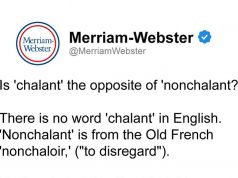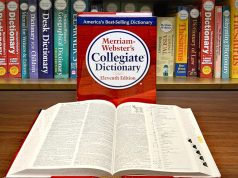Is Merriam-Webster‘s word of the year misused or has been overused on social media?
This was what some Filipinos thought after the renowned American dictionary said that “gaslighting” emerged as 2022’s top lookup.
“In this age of misinformation — of ‘fake news,’ conspiracy theories, Twitter trolls, and deepfakes — gaslighting has emerged as a word for our time,” it said on its website.
“A driver of disorientation and mistrust, gaslighting is ‘the act or practice of grossly misleading someone especially for one’s own advantage,'” the dictionary added.
It said that the term saw a 1,740% increase in lookups for its meaning, adding that it had “high interest throughout the year.”
The dictionary gives it two definitions. According to them, “gaslighting” may refer to the following:
- Psychological manipulation of a person usually over an extended period of time that causes the victim to question the validity of their own thoughts, perception of reality, or memories and typically leads to confusion, loss of confidence and self-esteem, uncertainty of one’s emotional or mental stability, and a dependency on the perpetrator
- The act or practice of grossly misleading someone especially for one’s own advantage
“Gaslighting” has been appearing on social media as a sort of buzzword among Pinoys, especially on Twitter.
As early as 2018, articles said that the term has emerged as a commonly used word among the public.
Its recognition as Merriam-Webster’s word of the year 2022 made some Pinoys comment on how frequently they see it being used.
“‘Most misused word’ dapat itey [ito],” a Twitter user wrote.
“Exaggeratedly overused,” another user said with facepalm emojis.
“Many people still need to understand the real meaning of ‘gaslighting’. Sometimes it is being used in the wrong context,” a different Pinoy observed.
The dictionary acknowledged its popularity on its website, saying that its meaning has also changed in recent years to refer to something “simpler and broader.”
“‘The act or practice of grossly misleading someone, especially for a personal advantage,'” it said.
“In this use, the word is at home with other terms relating to modern forms of deception and manipulation, such as fake news, deepfake, and artificial intelligence,” Merriam-Webster added.
“In recent years, with the vast increase in channels and technologies used to mislead, gaslighting has become the favored word for the perception of deception. This is why (trust us!) it has earned its place as our Word of the Year,” it continued.
The word came from the title of a 1938 play and the movie based on that play, “Gaslight.”
The plot revolves around a man attempting to make his wife believe that she is going insane.
His mysterious activities in the attic cause their house’s gas lights to dim, but he insists to his wife that the lights are not dimming and that she can’t trust her own perceptions.
When “gaslighting” was first used in the mid-20th century, it referred to a kind of deception similar to what the movie depicted.










